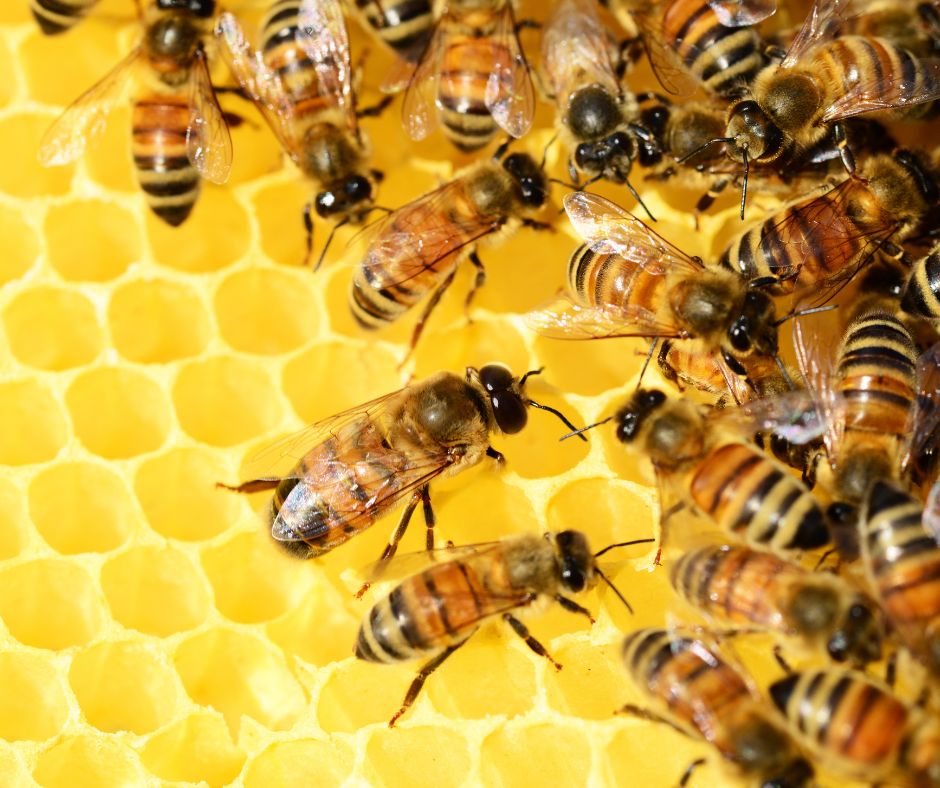Licensed Pest Control in Port Charlotte
Reveal the Relevance of Pest Control in Keeping a Healthy Atmosphere and Therapy Strategies
Pest control plays a vital function in protecting not just human wellness however likewise the delicate equilibrium of our ecological communities. The existence of parasites can cause significant health risks, consisting of the transmission of diseases and the irritation of allergies. Different therapy methods, specifically Integrated Insect Administration (IPM), use a complex approach to successfully handle and alleviate these dangers. As we explore the implications of bug control practices, it becomes essential to consider both the instant benefits and the long-lasting sustainability of our environment. What strategies may be most reliable in attaining this balance?
The Function of Bugs in Communities
Pests, often seen solely as nuisances, play a multifaceted duty in ecological communities that is important for preserving ecological balance. They add dramatically to different eco-friendly procedures, consisting of pollination, vitamins and mineral cycling, and bug control. Many insect types, such as bees and butterflies, are important pollinators for a broad range of plants, which in turn sustains biodiversity and food production.
In addition, bugs act as prey for countless predators, creating a crucial link in food internet. This connection guarantees the survival of various varieties and aids manage populations within ecological communities. Decomposer bugs, such as certain beetles and fungi, are instrumental in damaging down organic matter, thus improving dirt and facilitating nutrition recycling.
Alternatively, while insects can be helpful, their overpopulation or intrusion right into non-native atmospheres may interfere with these environmental functions. This intricacy emphasizes the value of comprehending pest dynamics, as effective insect monitoring approaches have to take into consideration both their environmental roles and possible impacts on human activities. Balancing pest visibility while minimizing damage is necessary for preserving the stability of communities and ensuring agricultural performance.
Health Risks Linked With Parasites

The presence of parasites in numerous settings prolongs past their eco-friendly duties, as they also pose substantial wellness risks to humans and animals. Lots of insects, consisting of rodents, bugs, and bloodsuckers, are service providers of diseases that can have major health and wellness implications. Rodents are known to send hantavirus and leptospirosis, both of which can lead to severe respiratory system and renal issues, respectively.
Pests such as insects and ticks are well known for spreading out vector-borne diseases like malaria, dengue high temperature, and Lyme disease. These diseases can lead to high morbidity and mortality rates, specifically in at risk populaces. Additionally, bugs like cockroaches and insects can aggravate allergic reactions and asthma, contributing to respiratory troubles in individuals, specifically those with pre-existing conditions.
Moreover, the existence of bugs can bring about psychological stress and anxiety and discomfort, impacting general well-being. Contamination of food and surface areas by insect droppings and remains can result in foodborne diseases, highlighting the relevance of preserving hygienic problems - Pest Control in Port Charlotte, FL. For that reason, comprehending the wellness dangers linked with pests is essential in identifying the requirement of reliable insect monitoring approaches to guard human and animal health and wellness.
Advantages of Effective Insect Control
Efficient pest control is essential for keeping a healthy and risk-free atmosphere, as it continually reduces the many risks connected with bug problems. One of the primary benefits of efficient parasite monitoring is the decrease of health and wellness hazards.

Another substantial benefit is the enhancement of general lifestyle. A pest-free setting adds to mental wellness and reduces tension connected with problems. Additionally, effective insect control cultivates a more secure atmosphere for kids and pets, making sure that homes remain refuges without harmful chemicals and disease-causing organisms.
Usual Insect Control Strategies
In the world of parasite monitoring, numerous techniques are used to combat invasions effectively. These strategies can be generally classified right into 3 main approaches: social, mechanical, and chemical controls.
Cultural view control entails modifying practices to reduce bug establishment, reproduction, and survival. This might consist of plant rotation, correct sanitation, and environment control, which jointly create an environment much less helpful to pest expansion.
Mechanical control uses physical techniques to eliminate pests. Methods such as traps, obstacles, and vacuums are generally utilized to straight remove pests from a location. This strategy is especially reliable for taking care of rodents and bugs without the usage of unsafe chemicals.
Chemical control involves the application of chemicals go to website to take care of pests. These compounds can be classified right into pesticides, herbicides, and fungicides, each targeting particular kinds of pests. It is crucial to make use of these chemicals carefully, adhering to safety and security guidelines and laws to reduce prospective injury to non-target varieties and the atmosphere.
Each pest control technique has its advantages and restrictions, and often, an integrated strategy integrating multiple methods yields the most effective results in preserving a pest-free atmosphere.
Sustainable Pest Administration Practices

Integrated Bug Administration (IPM) is a keystone of lasting practices, browse this site integrating organic, social, mechanical, and chemical techniques to manage pests. Organic control entails introducing all-natural predators or bloodsuckers to suppress pest populations. Cultural techniques, such as plant rotation and polyculture, interfere with pest life cycles and boost environment strength.
Mechanical techniques, such as catches or barriers, can efficiently prevent bug access without chemical intervention (Pest Control in Port Charlotte, FL). Additionally, keeping healthy and balanced ecological communities with appropriate soil administration, plant wellness, and biodiversity can normally alleviate pest concerns
Education and recognition are important components, equipping individuals and areas to acknowledge pest dangers early and implement safety nets. By fostering an all natural method that balances bug control with eco-friendly stability, lasting pest monitoring practices not just shield crops and structures but additionally add to a healthier setting for future generations.
Conclusion
By understanding the duty of parasites, acknowledging involved health threats, and using diverse therapy methods, a sustainable strategy to pest monitoring can be attained. Integrated Pest Management (IPM) highlights a holistic methodology that minimizes damage to advantageous organisms while properly managing parasite populations.